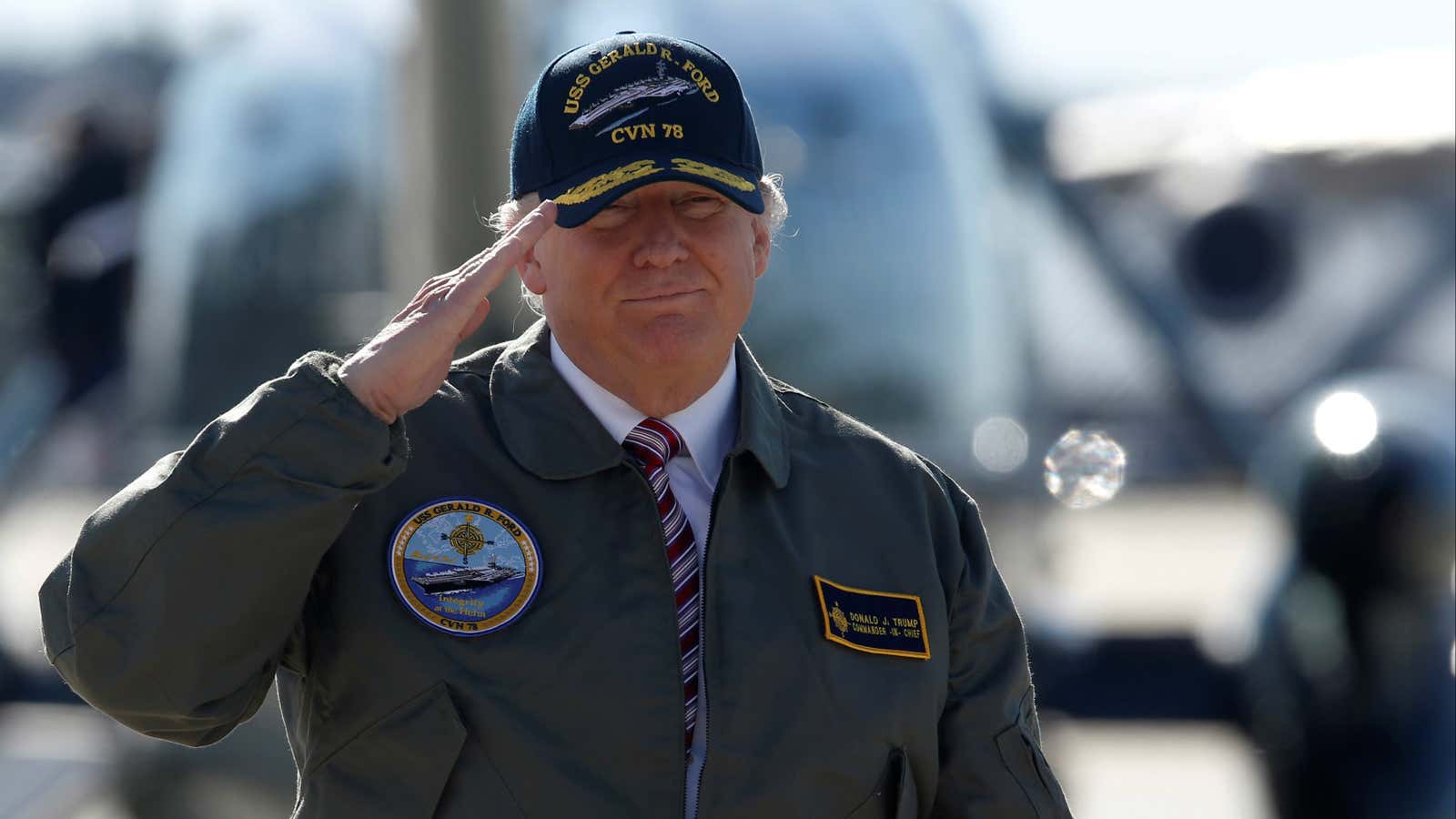If Donald Trump gets his way, US military spending will increase by 10% next year. Given that America spends nearly $600 billion on defense every year, this makes for a staggering sum.
The $54 billion increase to the budget of the Department of Defense proposed by the White House last week (pdf) would be, on its own, bigger than what all but two countries spend on their military in total. Here’s how the 2018 US budget proposal stacks up with spending elsewhere in the world last year, according to the International Institute for Strategic Studies, a think tank:
Put another way, the proposed US defense spending increase would be about the same size as the total annual budgets of Israel, Canada, Taiwan, Turkey and Mexico combined.
Trump outlined his “America First” budget last week, prioritizing defense and proposing deep cuts to almost every other department. ”In these dangerous times, this public safety and national security Budget Blueprint is a message to the world—a message of American strength, security, and resolve,” the budget proposal reads.
While it seems unlikely to pass Congress in its current form—it’s not enough of a military boost for some Republicans, while the cuts to other programs are too severe for other lawmakers—the preoccupation with “hard power,” as Trump’s budget director puts it, strikes some as misguided. Diplomacy and international aid—that is, “soft power”—play an important role in bolstering national security, as does the nature of defense spending, and not simply its size.
For example, Russia’s annual defense spending is roughly as big as Trump’s proposed increase. But instead of consistently outspending Russia, the US should target Moscow’s sophisticated (and relatively inexpensive) espionage, cyber, and propaganda efforts, according to Mark Galeotti, a Russian security expert at the Institute of International Relations in Prague. In other words, when it comes to defense spending, quality matters as much as quantity.
